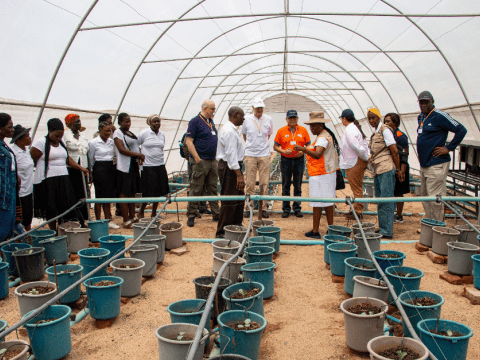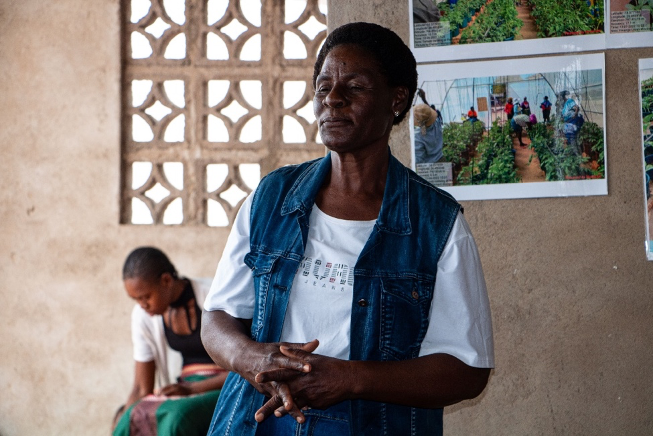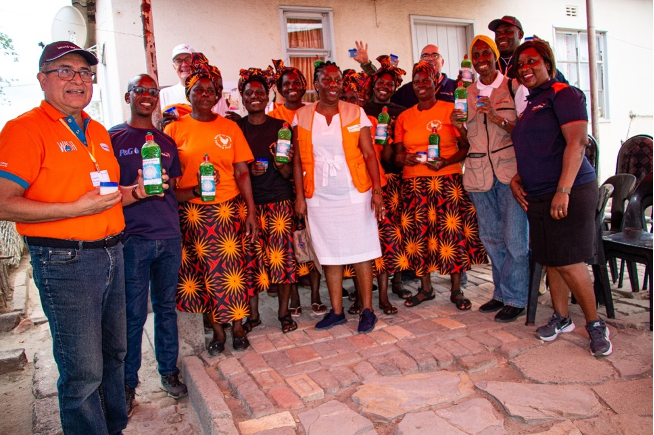A Journey of Hope: World Vision International Board Members Visit Resilient Communities in Hwange District

By Leana Padera (Communications Graduate Intern)
World Vision International Board Members recently visited Hwange District in Zimbabwe, a journey that brought them face-to-face with the resilience and determination of local communities navigating the challenges of poverty and drought. The visit offered a powerful glimpse into how World Vision Zimbabwe's initiatives are transforming lives, particularly for women and children who are building hope amidst adversity.
The Kujatana hydroponics garden stood out as a shining example of innovation and empowerment. Managed by 31 women under the Urban Resilience Program funded by the World Food Programme, the garden supports over 150 children by generating income through vegetable production. Enerest Mavondo, a participant in the program, shared her journey with heartfelt pride. “This program has changed my life. I can now send my children to school and provide for my family,” she said. Her words reflected the profound impact of this initiative, which has turned challenges into opportunities for sustainable livelihoods.

Among the visitors was Margie Apa, a board member from New Zealand, who expressed deep appreciation for the women's dedication. “Thank you for turning World Vision’s support into a brighter future for your community,” she said, her sentiments resonating with everyone present.
A particularly moving moment came when the visitors met the “Women of Valour,” a group of ten women engaging in income-generating activities like detergent-making, savings groups, and poultry farming. Their efforts have not only improved their families’ financial stability but also enabled them to invest in their children’s futures. Trishia Nyoni, a young girl whose mother is part of the group, shared her story. With a shy smile, she spoke about how her life had changed since her mother joined the initiative. “Before, I had to wear torn shoes to school. Now, I have new shoes and uniforms, just like other children,” she said, her words a poignant reminder of how small changes can open doors to bigger dreams.

The Nekabandama Irrigation Garden offered another example of resilience in the face of the El Niño-induced drought. Established with support from the World Food Programme, the garden provides consistent meals for 64 households, benefiting over 300 children. Despite the severe drought, which has intensified food insecurity across the region, the irrigation system has enabled families to grow vegetables for both consumption and sale. Monica Chibita, a board member from Ghana, remarked on the unwavering energy and passion of the community. “It is inspiring to see how people here are turning challenges into opportunities,” she said.

As the board members reflected on their experiences, the stories of these communities stood as powerful testaments to the importance of collective action and sustainable development. Through these projects, World Vision is not only addressing immediate needs but also fostering resilience and hope for the future.
The visit ended with a renewed sense of purpose among the board members, who left inspired by the strength and perseverance of the people they met. These moments of connection reaffirmed the transformative power of partnerships and the impact of programs that prioritize dignity, empowerment, and sustainable progress.